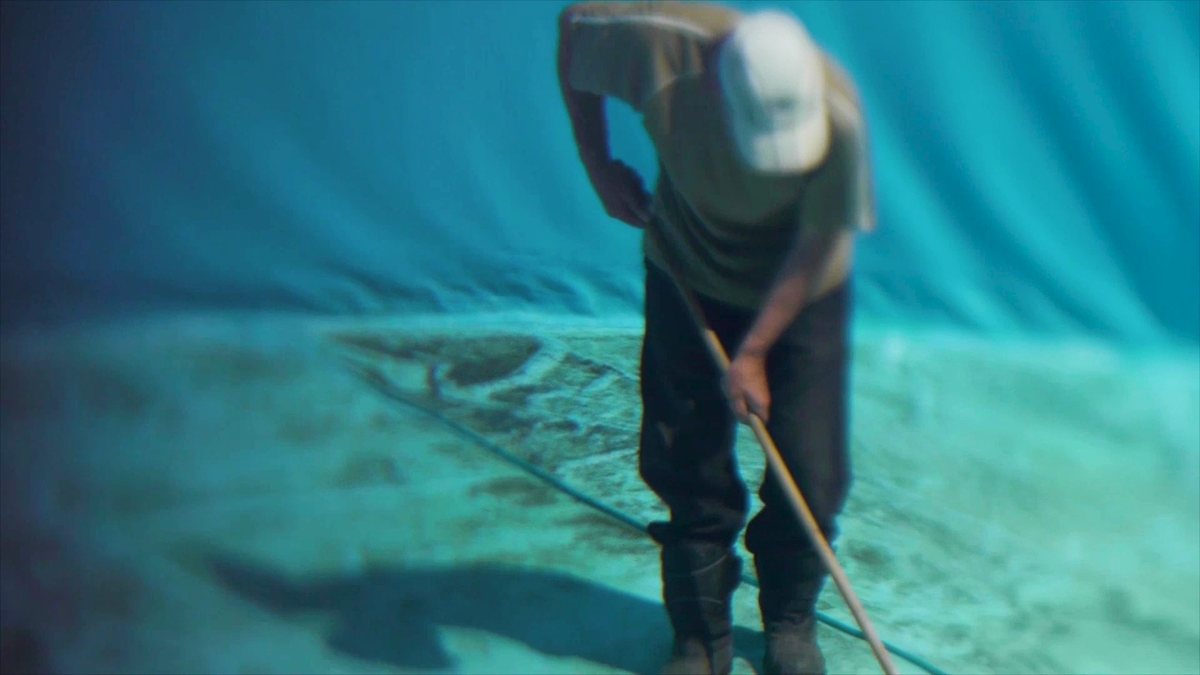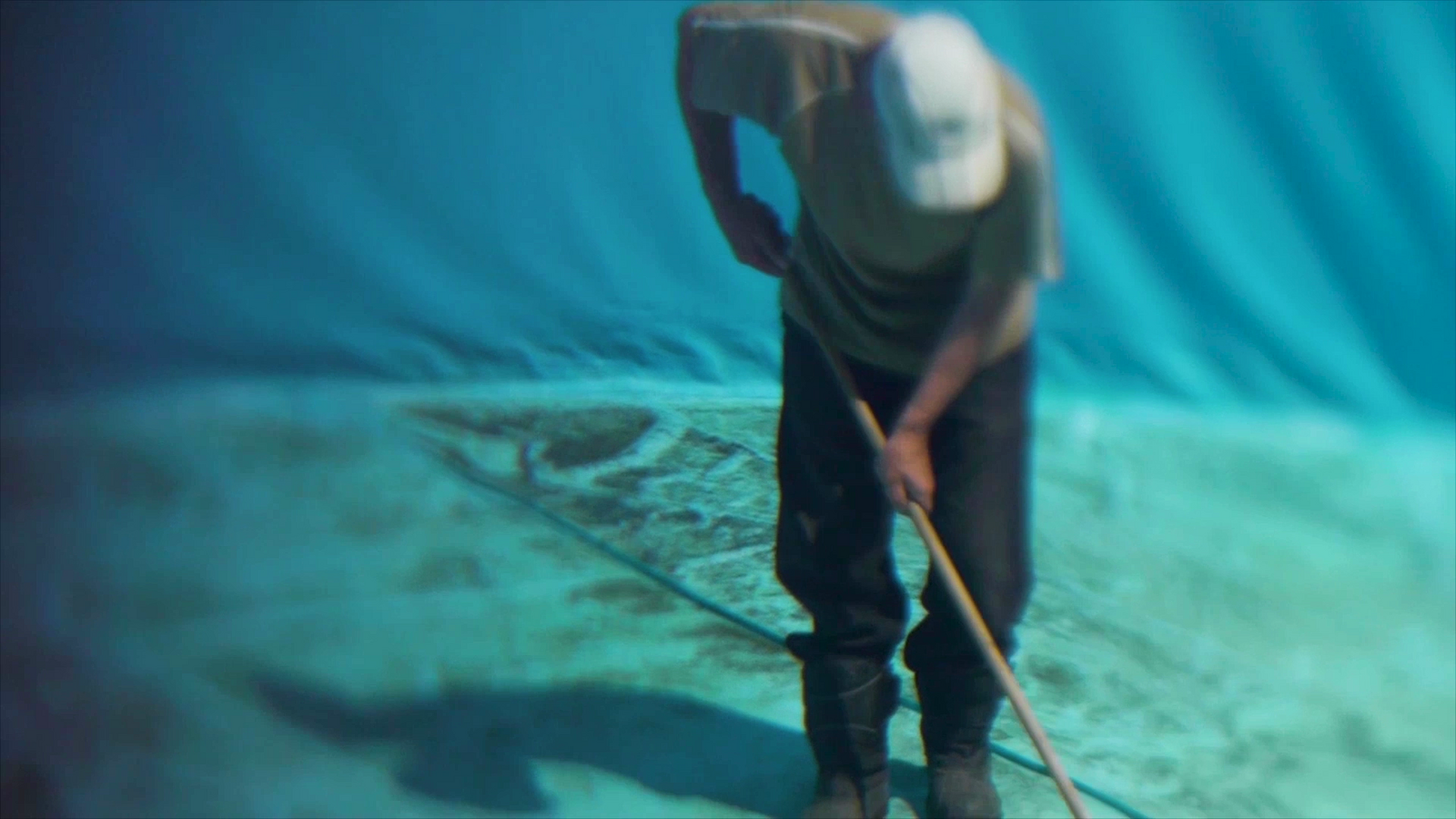May 1, 2024–January 19, 2025
Opening: Tuesday, April 30th, 7 pm
The world of work has undergone profound transformation in modern society. In the age of 24/7 access on offer, traditional working hours have long ceased to be the norm. The way “flexibility” is understood has changed, even reversed. It is no longer the subject of negotiation for the benefit of both sides, rather a one-sided expectation of the employer.
Despite—or precisely because of—the apparent freedom from rigid structures and time cards, many employees continue to struggle for fair conditions. Invisible work such as unpaid housework or care work, for the most part still carried out by women, is also a social problem at present, showing the need for feminist perspectives in the debate around work in order to address inequalities and exploitation.
With work increasingly precarious, and the low-wage sector expanding, the world of work is ever more differentiated by one area of well-paid and secure positions, and the other area with under-challenging, insecure, and existentially threatening labour conditions. Instead of coming closer to a classless society, a new class of “working poor” has arisen. At the same time, such terms as New Work, 4-day week and work-life balance are the latest buzzwords. Are these mere empty phrases and feel-good topics of a digital bohemia? Or realistic demands in an age of maximum stress that all occupational groups can make and that will permanently change the dynamics between employers and employees? What effects does the prioritisation of the economy have on social policy, and to what extent is productivity linked to time? Is Benjamin Franklin’s famous maxim “time is money” still valid today, when the widespread article of faith in our performance-based society—that we live in order to work—has increasingly begun to falter? And the reverse case, which initially appears attractive—that we work in order to live—means above all labour being reduced to an economic necessity.
The changes in the working world that are shaping our present are complex and multi-layered. They reflect our adaptability and the ongoing search for balance in an ever-changing world. In a not-too-distant future, technologies such as artificial intelligence and automation will further transform the world of work, bringing new challenges that will again necessitate social and political discourse. Yet is work really on the brink of immateriality? Or is there not rather a danger, in the euphoria surrounding AI, of forgetting about that physical, mental and emotional labour that is connected to countless areas of our lives? Is the ongoing process of technology ensuring paradoxically that we work more? Or might hard work by body and hands soon be taken over entirely by machines? And for whom this is the case—are we at a point at which Marcuse’s vision could become reality and we are finally able to take more time for creativity and personal development?
In the post-Fordist society, which is characterised by increasing flexibility, individuality and globalization, the boundaries are blurred between a person being exploited and achieving self-realisation. This is especially so in the field of art and culture. Female artists, in particular, frequently see themselves confronted with challenges rooted in precarious working conditions, which can range from insecure employment arrangements to inadequate payment.
The modern world of work is facing a wide range of complex challenges and discussions—from issues of inequality, mental health at the workplace and the reconciling of one’s professional and private life, to digitalisation, globalisation and climate change. 24/7: Work between meaning and imbalance reflects the breadth of this spectrum of themes in some 30 artworks tackling various aspects that both those working and those not working are confronted with in society today.
One part of the exhibition space is available for new productions and performative art projects, which will allow the exhibition to grow as it runs. The artist Santiago Sierra, for example, will be putting on a two-day performance (May 1 and September 21) with two people with a migrant background entitled Repetition of the writing of a phrase (with the kind support of the ISOP association). The two-member artist group KURS will work in several phases on the wall installation We have always received something in exchange that we lived, in which they approach the topic of work through the concept of laziness. On June 14, British-Canadian media artist Sam Meech will use a knitting machine to produce a banner in his performance Punchcard Economy: 8 Hours Labour, which lasts an entire working day and addresses the great achievement of the labour struggle to limit the working day to eight hours. In addition to legendary works of art in the context of labour, such as Semiotics of the Kitchen by Martha Rosler from 1975, Harun Farocki’s Workers Leaving the Factory from 1995 and Tehching Hsieh’s One Year Performance, 1980-1981, in which the artist operated a time clock on the hour for a year, the exhibition will show new and adapted works by Mikhail Mikhailov, Luiza Margan and Aldo Giannotti.
A work created as a co-production with the History Museum originates from filmmakers Simon Nagy and Lia Sudermann, who engage with holdings from the Blaschka Photo Archive. Parallel to the exhibition at the Kunsthaus, the History Museum tells of the imbalance in the world of work and the massive inequalities between the sexes that still exist today. Titled Alles Arbeit (It’s All Work), this is based on Egon Blaschka’s documentary images which he took in the 1950s primarily in his role as press photographer for the Kleine Zeitung.
Exhibition artists
Maja Bajević, Julien Berthier, Louisa Clement, Manuel Correa & Marina Otero Verzier, Jeremy Deller, Antje Ehmann & Harun Farocki, Aldo Giannotti, Liam Gillick, Lisa Großkopf, Andreas Gursky, Michael Hieslmair & Michael Zinganel & Theresa Hattinger, Tehching Hsieh, Johanna Kandl, Peter Kogler, KURS (Miloš Miletić, Mirjana Radovanović), Luiza Margan, Pia Mayrwöger, Sam Meech, Michail Michailov, Elisa Giardina Papa, Nika Radić, Martha Rosler, Sebastian Schmieg & Silvio Lorusso, Christoph Schwarz, Selma Selman, Santiago Sierra, Lia Sudermann & Simon Nagy, Oliver Walker.

